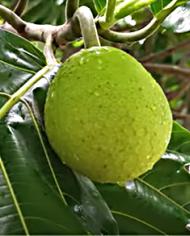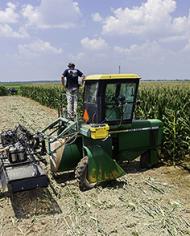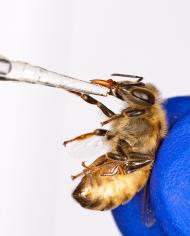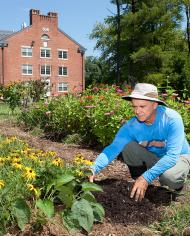A team of researchers from the Agricultural Research Service (ARS) at the National Laboratory for Agriculture and the Environment in Ames, IA, is collaborating with the University of Illinois to protect this cherished fall crop from emerging threats and help farmers maintain production.
Tellus Articles
In this video, USDA researchers explain how early-life nutrition, physical activity, and research-backed strategies can help families and communities support childhood health from the start
ARS is one of the most successful federal agencies in bringing consumers the results of research.
Healthy rangelands are essential for ensuring grazing and forage productivity, reducing wind erosion and wildfire risks, and supporting wildlife ecosystems.
Common crupina threatens “First Food” growth on tribal lands
ARS researchers are studying the great potential of the multifaceted grain Kernza
U.S. agriculture could save billions by targeting invasive weeds with biological control agents
This video shares research from USDA scientists who are studying the connection between diet, gut health, and chronic abdominal pain in kids.
ARS researchers are mapping the genome of the passionflower bee in order to help protect bee diversity.
ARS aims to make Popping Beans a tasty snack that is both protein-rich and gluten-free
ARS scientists on the campus of Tufts University at the Jean Mayer Human Nutrition Research Center on Aging found that a low intake of powerhouse Vitamin K has the potential to reduce cognition and alter several types of nerve cells.
Native microbes provide the key to healthier pollinators and better harvests
ARS scientists develop monitoring system to support farmers in their effort to protect the Chesapeake Bay
Researchers team up to battle peanut smut before it reaches American farms
Five-year cover crop study showed greater yields and improved root microbiomes for some plants
Aquaponic systems may help sweetpotato industry and feed ‘urban deserts.’
ARS researchers in Boise, ID, are studying prescribed fires in western juniper type landscapes to better understand how this land management tool affects the hydrology, habitat, and overall ecosystem of this land type.
Researchers bring rosette weevil to bear on yellow star thistle.
Scientists develop new sorghum lines to help cash crops from nematode attacks.
Agricultural Research Service (ARS) researchers are helping Americans offset chronic health diseases and the debilitating effects of obesity, which can cost up to $4.5 trillion in annual health care expenditures.
ARS Researchers search for solutions to X-disease, devastating the U.S. sweet cherry industry.
Researchers adopt on-site plotting and multi-spectral sensors to gather new data
ARS researchers aim to curb the spread of invasive pests and plants through Area-Wide Pest Management
ARS researchers have made a new discovery that could benefit the U.S. catfish industry.
ARS’s world class nutrition research is helping Americans live longer, healthier lives.
ARS researchers study the effectiveness of nematodes in reducing a major soybean foe.
A tiny wasp is turning out to be an important ally for one of America’s biggest crops.
ARS researchers are studying the potential benefits of reversing soil erosion on hilly lands
Long-term project returns thriving cacao industry to Puerto Rico
ARS researchers found great value and benefits when intercropping oat with pea plants
New project invites researchers to take treatments from the lab to the field.
Scientists discovered that bees and hoverflies collect pollen from centipedegrass flower heads.
Breadfruit is a popular fruit in the Caribbean and gaining interest worldwide.
ARS researchers are exploring food insecurity among Asian and Hispanic Americans.
The Library—and the Department of Agriculture—were established by President Abraham Lincoln on May 15, 1862
ARS has developed a series of four ornamental pepper cultivars named Christmas Lights.
A sprayable bioplastic helps deliver beneficial microbes to fight aflatoxins and other pathogens and pests.
ARS scientists are trying to ensure a sustainable future for cranberries.
Learn more about molecular biologist Lisa Ainsworth's work on crop responses to global atmospheric change.
ARS scientists in Beltsville, Maryland are working to improve turkey production.
The ARS National Peanut Research Laboratory celebrates 50 years of research on the popular legume.
ARS is part of a program to help military veterans explore careers in agriculture.
Cute as Can Bee! Learn more ARS honey bee research.
The Agricultural Research Services strikes gold with a new potato variety.
An ARS scientist developed monoclonal antibodies that screen for botulinum toxin.
A mobile system removes phosphorus from manure offering flexibility in using nutrient to fertilize crops.
The ARS Bee Research Lab maintains a Pollinator Garden as an educational tool.
ARS research finds cedarwood oil has potential as a natural pest-control agent and wood treatment.
Controlling cheatgrass to restore rangelands, reduce wildfires and increase sustainable grazing resources.




















































